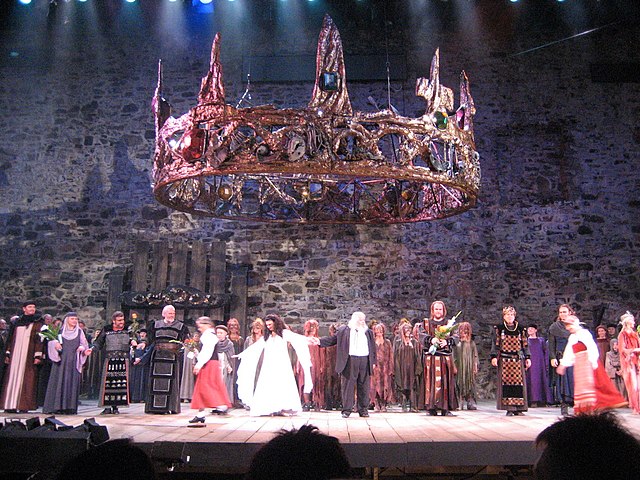Wilhelm Richard Wagner was a German composer, theatre director, polemicist, and conductor who is chiefly known for his operas. Unlike most opera composers, Wagner wrote both the libretto and the music for each of his stage works. Initially establishing his reputation as a composer of works in the romantic vein of Carl Maria von Weber and Giacomo Meyerbeer, Wagner revolutionised opera through his concept of the Gesamtkunstwerk, by which he sought to synthesise the poetic, visual, musical and dramatic arts, with music subsidiary to drama. He described this vision in a series of essays published between 1849 and 1852. Wagner realised these ideas most fully in the first half of the four-opera cycle Der Ring des Nibelungen.
Wagner in 1871
Wagner's birthplace, at 3, the Brühl, Leipzig
Wilhelmine "Minna" Planer (1835), by Alexander von Otterstedt
Wagner c. 1840, by Ernest Benedikt Kietz
Opera is a form of theatre in which music is a fundamental component and dramatic roles are taken by singers. Such a "work" is typically a collaboration between a composer and a librettist and incorporates a number of the performing arts, such as acting, scenery, costume, and sometimes dance or ballet. The performance is typically given in an opera house, accompanied by an orchestra or smaller musical ensemble, which since the early 19th century has been led by a conductor. Although musical theatre is closely related to opera, the two are considered to be distinct from one another.
Macbeth at the Savonlinna Opera Festival in St. Olaf's Castle, Savonlinna, Finland, in 2007
La Scala of Milan
Palais Garnier of the Paris Opéra
Berlin State Opera








